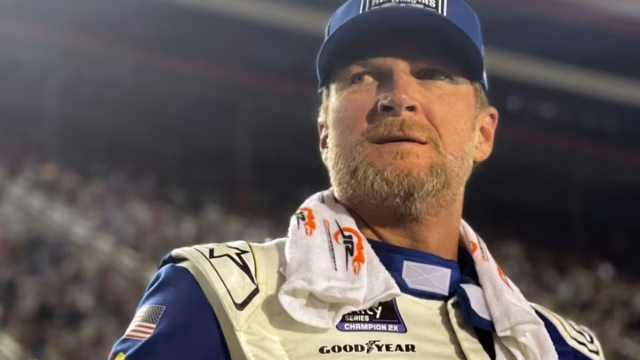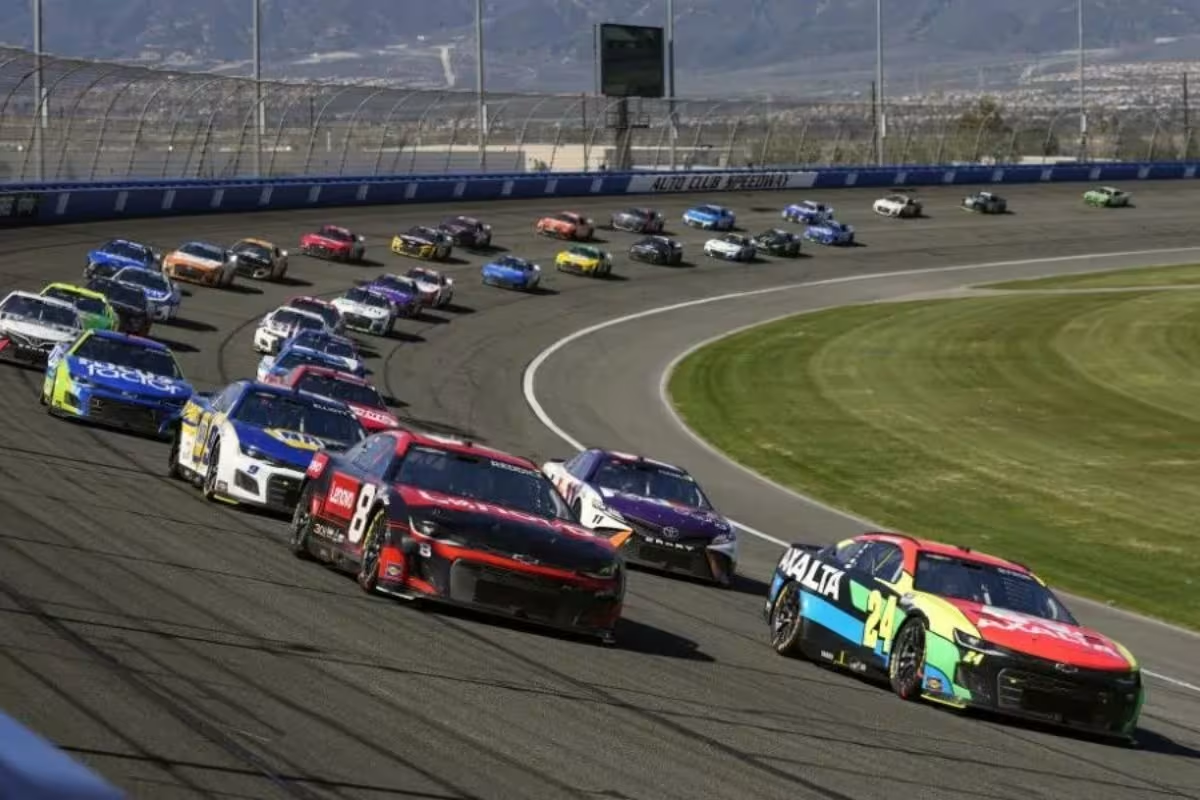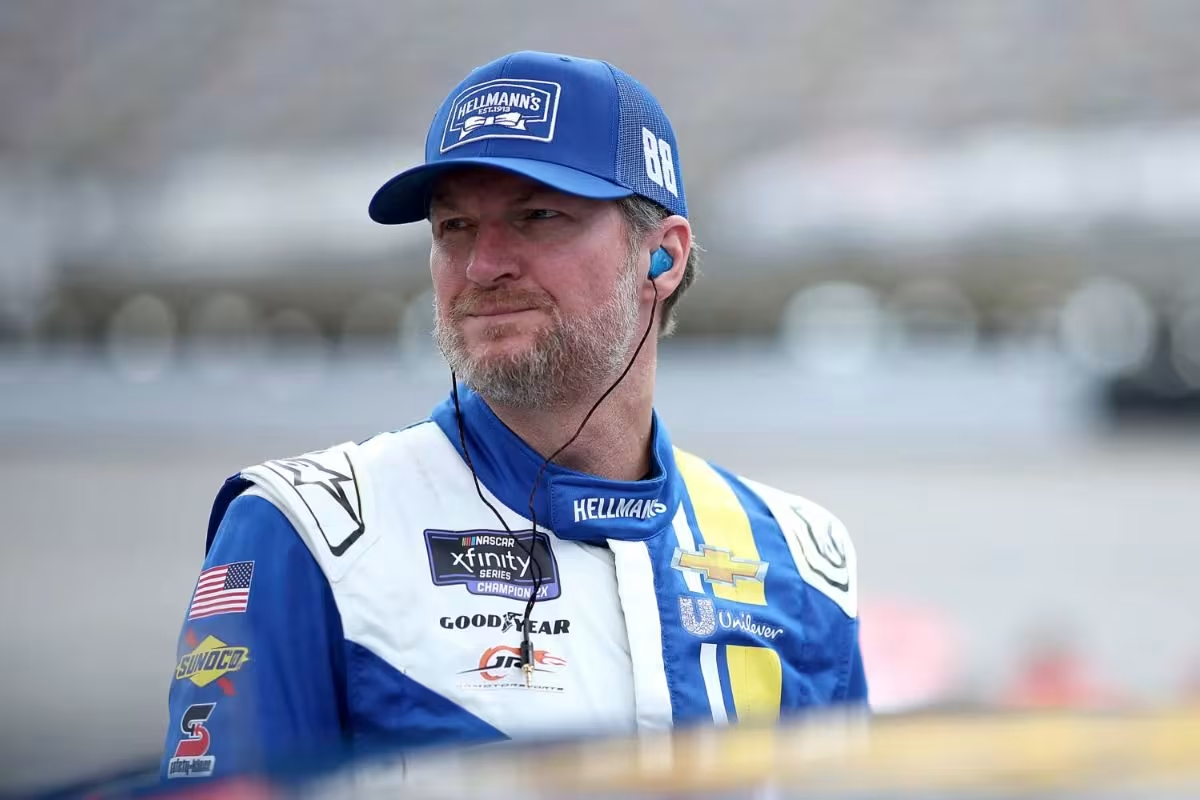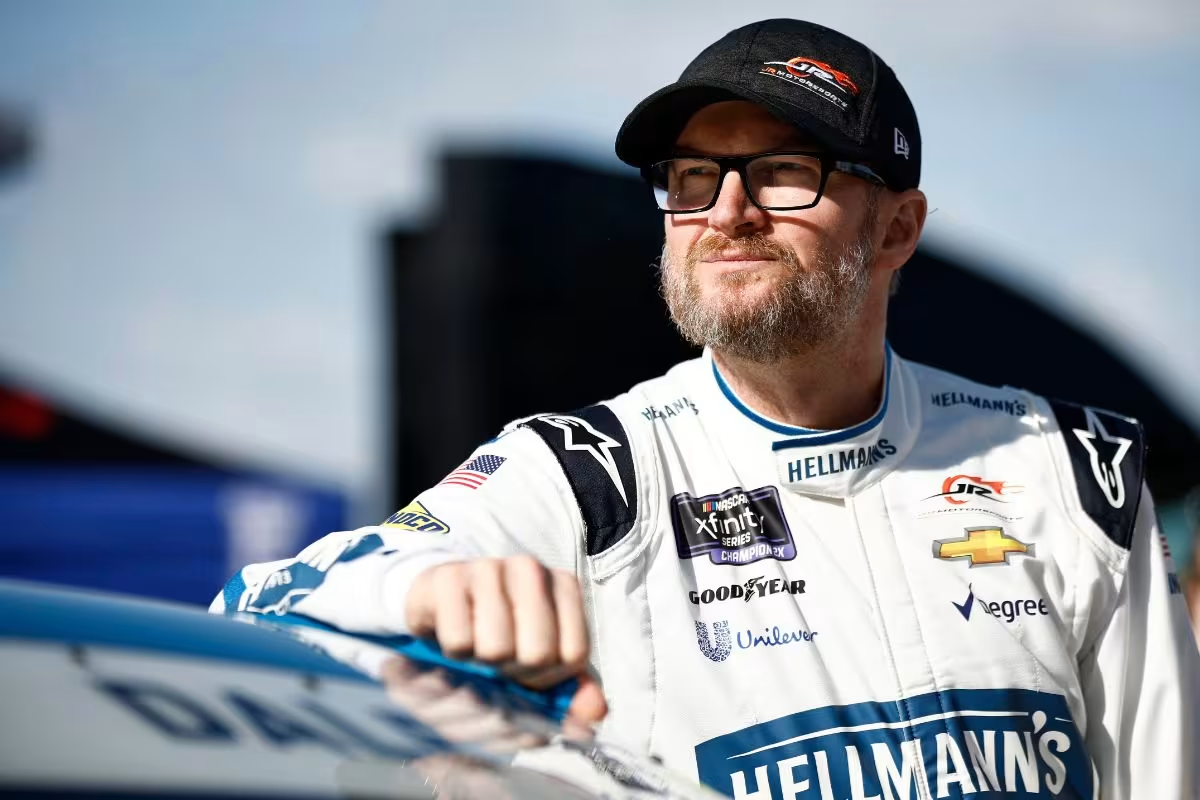Dale Jr. Slams NASCAR’s Bristol Setup: Dale Earnhardt Jr.’s recent critique of NASCAR’s Bristol setup emphasizes a notable concern regarding the viability of short-track racing in its current form. His assertion that “I do not see short-track racing surviving” shows dissatisfaction with the existing competitive landscape and reflects a broader anxiety among fans and the industry about the future of the sport. As discussions intensify over the need for a revised short-track package, the implications of these changes could reshape the NASCAR experience. What specific reforms could reinvigorate short-track racing, and how might they alter the dynamics of the sport?
Key Highlights
- Dale Earnhardt Jr. criticized NASCAR’s Bristol setup, expressing concerns over its impact on the future of short-track racing.
- He shows the lack of competitive balance, with few drivers dominating races and limiting overtaking opportunities.
- The recent Bristol races have resulted in widespread fan disappointment, with many calling for a reevaluation of the short-track package.
- Earnhardt Jr. emphasized the urgent need for NASCAR to address setup issues to maintain fan interest in short-track events.
- If current trends continue, he fears short-track racing may struggle to survive within the NASCAR calendar.
Overview of the Bristol Motor Speedway Race
The Bristol Motor Speedway race consistently ranks as one of the most anticipated events on the NASCAR Cup Series calendar, drawing significant attention from fans and analysts alike. Known for its unique half-mile oval layout, Bristol presents a distinctive challenge that combines high speeds with close-quarter racing, resulting in fierce competition and dramatic moments.
The spring race exemplified this intensity, showcasing extreme tire wear that surprised even the most seasoned drivers. NASCAR’s decision to issue supplemental tire sets mid-race highlighted the relentless nature of the track, with Denny Hamlin ultimately demonstrating exceptional tire management to secure victory. Such unforeseen challenges often heighten the thrill for fans, ensuring that Bristol remains a focal point in the racing season.
The recent Bristol eliminator showcased a different narrative, characterized mainly by Kyle Larson’s dominance. Leading an astonishing 462 laps out of 500, Larson set a new record for the most laps led by a Hendrick Motorsports driver.
However, this one-sided performance elicited disappointment among fans, who observed a mere eight lead changes, a notable decline from the 54 lead changes witnessed in the spring race. This disparity raises vital questions about the efficacy of NASCAR’s short-track package, drawing examination from notable figures like Dale Earnhardt Jr.
NASCAR’s Failing Short-Track Package
Concerns surrounding NASCAR’s short-track package have intensified following the recent Bristol eliminator, where Kyle Larson’s unchallenged dominance highlighted considerable issues with competitive balance. The race shows a troubling trend: once a driver secured a lead, overtaking became nearly impossible. This phenomenon stifles competition and undermines the essence of short-track racing, which is characterized by its close-quarters action and frequent position changes.
The implications extend beyond mere spectator enjoyment. For drivers like Martin Truex Jr., whose championship aspirations were effectively extinguished after a speeding penalty pushed him to the back of the field, the inability to regain lost ground is particularly disheartening. Truex’s experience exemplifies a broader systemic issue within the current package.
Despite starting in competitive positions, drivers found themselves unable to advance, even against lower-tier teams, casting doubt on the parity that NASCAR aims to achieve. This lack of overtaking opportunities raises critical questions about the future viability of short-track racing within the NASCAR framework.
If the current setup continues to favor a single line of racing, fans may increasingly disengage, drawn away by the allure of more competitive motorsports. Given these developments, it is imperative for NASCAR to reassess its short-track package.
Jeff Gluck and Dale Earnhardt Jr. Criticize NASCAR’s Short-Track Package
Criticism of NASCAR’s short-track package has reached a fever pitch, with prominent voices like Jeff Gluck and Dale Earnhardt Jr. expressing deep dissatisfaction following the recent Bristol race. Gluck, a respected NASCAR journalist, articulated his frustrations by labeling the race as a “total letdown,” underscoring a collective disappointment from fans and participants alike.
“It was a total letdown. It was just such a disappointing night because everybody was so excited for it.”-(GLUCK)
The excitement surrounding the event was palpable, yet the outcome fell far short of expectations, prompting Gluck to call out NASCAR for failing to deliver an engaging short-track experience.
Dale Earnhardt Jr. echoed Gluck’s sentiments in a recent episode of his podcast, Dale Jr. Download. He noted, “This cannot be okay,” highlighting the urgent need for NASCAR to reevaluate its current short-track package.
“I heard Jeff Gluck on the Teardown this week, this cannot be okay. I feel pretty confident that NASCAR is looking at this and saying the same thing. I do not see short-track racing surviving this, if they don’t find some solution. And it’s not out of the question to think that in just a few years the Martinsville and the Bristols are going to be really hanging on.”-(DALE JR.)
Junior expressed grave concerns about the future viability of short-track racing, stating, “I do not see short-track racing surviving this, if they don’t find some solution.” His analysis suggests that without notable changes, iconic venues like Martinsville and Bristol could face an uncertain future, potentially losing their status as cornerstone events within the NASCAR calendar.
"I do not see short track racing surviving this if they don't find some solution." 😢 pic.twitter.com/89uyJo6RiK
— Dirty Mo Media (@DirtyMoMedia) September 25, 2024
As the sport evolves, stakeholders must address these concerns to guarantee the enduring appeal and competitiveness of short-track events. Failure to do so may jeopardize the very essence of what makes NASCAR racing engaging for its dedicated fan base.
The Short-Track Package Decline Since the Next-Gen Car
Recent data reveals a troubling trend in the performance of NASCAR’s short-track package since the introduction of the next-gen car, indicating a notable decline in competitive racing. The statistics from recent Bristol and Richmond races demonstrate a concerning pattern: dominance by a limited number of drivers. In both the 2022 and 2023 Bristol races, only three drivers led a staggering 461 combined laps out of 1,000. This lack of diversity in leadership has raised considerable questions about the integrity of short-track competition.
The situation is similarly dire at Richmond, where the initial race saw two drivers lead 372 of 400 laps, while the subsequent race featured just three drivers controlling 339 laps. These results underscore a concerning trend where the races lack the unpredictability and excitement that fans expect from short-track events.
Dale Earnhardt Jr. has vocalized these frustrations, emphasizing that without rapid intervention from NASCAR, short-track racing may struggle to maintain its relevance in the sport.
The essence of short-track racing lies in its ability to create thrilling, close-quarters competition. However, the current short-track package appears to favor a few drivers, leading to a monotonous viewing experience.
NASCAR Responds to Fan Disappointment Over Bristol
NASCAR faces a considerable challenge in addressing fan disappointment following the recent Bristol races, where expectations for thrilling competition fell flat. The clear contrast in outcomes between the two races has left NASCAR questioning its short-track package, as the anticipated excitement failed to materialize.
“I am disappointed too, I’m not sure why they got the result they got. Why the tire did what it did? I’m not confident we know what to do it. Just five years ago we were all begging for more short tracks. It was a hashtag trending on social media and now nobody wants to go to one. Now nobody wants to see one on the schedule next week. What a travesty.”-(sawyer)
Key points of contention include:
- Tire Performance: Lack of tire wear greatly impacted race dynamics, limiting overtaking opportunities.
- Dominance of Certain Drivers: Kyle Larson’s overwhelming performance overshadowed competition, detracting from a more balanced contest.
- Veteran Elimination: The struggles of seasoned drivers like Martin Truex Jr. and Brad Keselowski raised concerns about the track’s competitive nature.
- Fan Sentiment: A shift in fan enthusiasm, once clamoring for more short-track events, now reveals disappointment and skepticism regarding future races.
Elton Sawyer acknowledged the disappointment on SiriusXM NASCAR radio, expressing a commitment to investigate the tire issues with Goodyear. He emphasized the need for introspection and corrective measures to restore fan trust and engagement.
“We’ll dive into that with our meetings today with our folks at Goodyear to see what maybe they have been able to come up with over the last couple of days in their meetings. Obviously, we were disappointed as a company for our fans. Those are things we’ll learn from, and we’ll figure out what happened and get that corrected as we go forward.”-(sawyer)
Sawyer stated, “We just need to figure out what happened and how we’re going to correct it,” highlighting the importance of learning from these setbacks.
“We just need to figure out what happened and how we’re going to correct it and move forward because we have had some really good short track racing, as well as road course racing, this year. Goodyear’s tire has really contributed a great deal to that.”-(sawyer)
As NASCAR navigates this tumultuous period, it is imperative for the organization to not only recognize the challenges but also to implement effective solutions that will improve the short-track experience, ensuring that it remains a main of the racing calendar.
News in Brief: Dale Jr. Slams NASCAR’s Bristol Setup
This concerns raised by Dale Earnhardt Jr. regarding NASCAR’s Bristol setup underscore a crucial juncture for short-track racing. With decreasing competitive balance and limited overtaking opportunities, the viability of this racing format is increasingly jeopardized. Stakeholders must address these issues urgently to preserve the integrity and appeal of short-track events. If reform measures are not implemented, the future of short-track racing may be at considerable risk, ultimately impacting the broader landscape of NASCAR.
ALSO READ: Dale Earnhardt Jr. Back to NASCAR: Will the Pull of Nostalgia Drive Him Forward?



